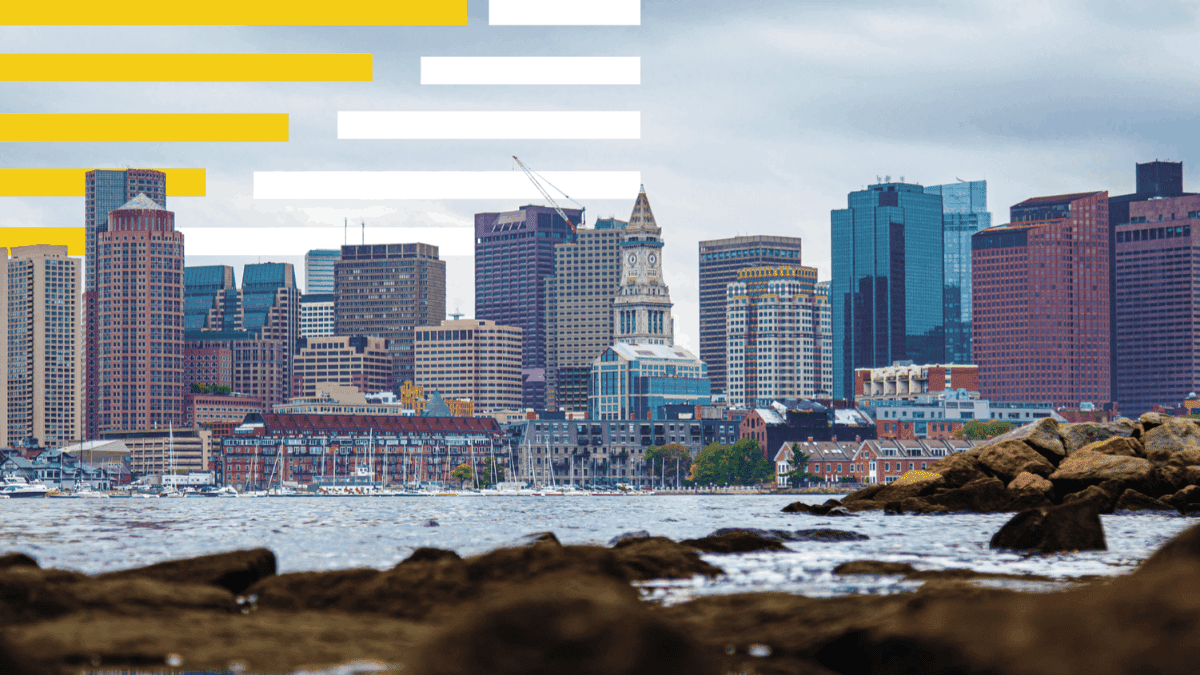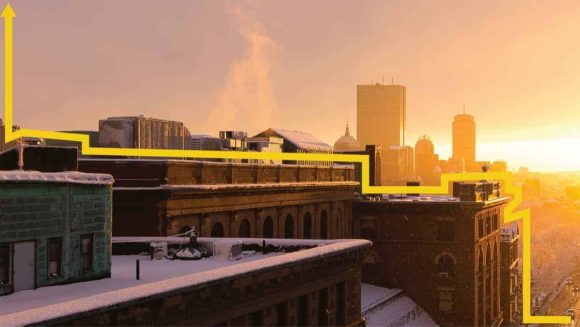Are you deciding where to build your startup? Boston may not be the best choice, but Matthew Wozny, a recent graduate of Harvard Business School who’s researched the history of ecosystems, has expansive optimism about the future of Boston’s startup ecosystem. In this piece, he articulates his top three reasons to build your startup in Boston. And if his top three reasons are not enough for you, read his follow-up article, 6 Reasons Why Boston is the Best City for Startups!
Dear Founders,
Are you trying to figure out what the best city is to house your startup? It may not be Boston.
Don’t get me wrong: Boston is an extraordinary place for entrepreneurship, and I’ll touch on that through the rest of this article. But, yes, in case you’re considering it, office space will be cheaper in Austin. No doubt. You will likely stir more media attention in New York. And potentially score a higher valuation in San Francisco.
So why stay here? Heck, why come here? What does Boston really have to offer?
In my opinion, there are three core reasons to start or expand your startup in Boston. I go through each in some detail below.
1. You want access to amazing talent.
When industry leaders were asked what the greatest advantage of doing business in Massachusetts was, 52 percent said talented workers.
There’s a reason for that: Boston is home to some of the world’s best and most productive research universities.
Question: What’s the only university that had more patents issued in 2018 than MIT?
Answer: The ENTIRE public university system of California.
Since 1901, Harvard and MIT ranked 1st and 6th in the number of Nobel Prize winners produced. Since 2000, by the way, they are 1st and 2nd. Extraordinary faculty attract extraordinary students, who participate in cutting edge research in the world’s densest education cluster.
So, over 350,000 university students, of which nearly 40 percent will graduate from a top 50 university, tool up and study here. Harvard trains more stem cell researchers than the state of California. Twenty-five percent of MIT undergraduates finish with a degree in Course 6 (Computer Science). Massachusetts is the runaway top producer of STEM degrees in the country. Boston is a factory of talent, and this talent serves as an engine for our technology businesses.
Do you want the smartest, most capable people for your businesses? Build your business in Boston.
''Do you want the smartest, most capable people for your businesses? Build your business in #Boston'' Click To Tweet

2. You want to be part of an amazing community.
The recipe for extraordinary startup communities is now well-studied and clear: pillar firms, research hubs, the fluidity of labor markets, a risk capital infrastructure, openness, and a propensity of one generation of entrepreneurs to give back to the next.
Frankly, Boston didn’t always have the ingredients. It does now.
For over a century, regulation held Boston back. Inability to capitalize greater than $10 million in Massachusetts prompted Alexander Bell eventually to relocate AT&T to New York, out from where came Bell Labs. Non-compete agreements, enacted under the guidance of big businesses to protect big businesses, restricted the exchange of talent and pollination of ideas. With the MA Noncompete Law that took effect on October 1, 2018, free labor mobility is now the de-facto standard.
Our startups of the 2000s, like Kayak, HubSpot, or Toast, are not like our startups of the 1900s, like Raytheon. Before, Boston had enterprises that consumed startups, not spawn them.
Now Boston has platform companies. Companies like Wayfair growing their suppliers. Or like GE, partnering eagerly as the first customer to many of the city’s startups. Or like HubSpot, spawning new companies. They all embolden new entrepreneurs and expand the new innovations Boston brings to market. From Indigo to EzCater, Toast, Drift, DraftKings, and many others, unicorns today proliferate.
Successful entrepreneurs like Dharmesh Shah, Brian Halligan, and David Chang are giving back to the generation below. Startups founded by alumni out of schools like Harvard College, MIT, and Harvard Business School are outraising and outperforming their West Coast counterparts. People are friendly. Former founders and existing businesses are open to adopting new technologies. Core Community events, incubators, like MassChallenge or UFirst, and coworking spaces like CIC bring the ecosystem together into an extended family. Politicians listen and act on ways to support and accelerate entrepreneurs. Boston continues to grow more inclusive, ranking as the second best ecosystem for female founders and the sixth most diverse city in the United States.
The impact is that from a market capitalization perspective, Boston trails only Silicon Valley. Within two decades, it will surpass it. Our risk capital is finally in Boston, not along Route 128. Kendall Square now battles with another cluster across the river – the Seaport. Startups are leaving Silicon Valley and moving here to access talent and the lower cost of doing business. MIT is establishing a $1 billion AI college that will train world-class talent, generate computing innovations for generations, and ink Boston’s leadership on the future. Harvard is expanding its Allston campus, transforming it into a solutions factory, investing in the Innovation Lab, and moving the School of Engineering to sit next to the Harvard Business School. The impact is that Western Avenue will become the new Sand Hill Road. Longwood, with its cluster of hospitals, biotech companies, and research institutions, is poised to become yet another life sciences mega-cluster.
What awaits Boston is a renaissance, a pursuit of moonshot ambitious solutions to the world’s most pressing problems. If you’re building a business that fits that mold, Boston is the best city for you.
''What awaits Boston is a renaissance, a pursuit of moonshot ambitious solutions to the world’s most pressing problems. If you’re building a business that fits that mold, Boston is the best city for you'' Click To Tweet
3. You want to live in an amazing city.
What you hear all the time is that winters can be brutal in Boston. What you never hear is how sublime New England summers always are. There’s a reason why celebrities, politicians, and billionaires from California and New York flock each year to summer in the North Shore, Nantucket, Cape Cod, and Martha’s Vineyard. In the summer, New England is God’s paradise. There is no place more spell-binding. Full stop.
Further Evidence: I Love You Boston from Bodhi Films on Vimeo.
Boston lacks the sprawling nightlife of New York. But the deficiencies stop there. Think about it. Its bar culture? Its proximate hiking and ski slopes? Its date spots, restaurants, cultural institutions, and parks? Its sporting fanaticism in football and basketball, baseball, and hockey? Its hospital and public school systems? Its sense of civic duty? Its big city vibe in a small town? They are par excellence.
What’s particularly cool is that Boston is at its core an entrepreneurial city. A city of sweat and hustle. Yes, it fomented the American Revolution, started the first public school system in the country and launched the first university. This much is well known. Less well known is its legacy of risk capital, new market, business model, and technological breakthrough innovation.
For example, take risk capital. From insurance securing ships to pools of wealthy families (called the Boston Associates) financing the Industrial Revolution, Boston created new ways to stage risk and take big business bets. It’s not strange that the structure of whaling venture financing in the 1800s strongly resembles the structure of venture capital firms. After all, HBS Professor General Doriot, who taught great future investors like Arthur Rock and Bill Helman, founded ARDC, the first venture capital firm, in Boston.
Stories of Boston entrepreneurship abound. The “Iceman”- Frederic Tudor – failed five times in the early 1800s before ultimately succeeding in solving the business model problem of procuring, transporting, storing, and selling ice. When he did, he invented a global need no one knew they had. In the late 1800s, Bell started at least three telecom companies – the last, AT&T – becoming the most valuable telecom company in the world. Rivals from other cities, like Elisha Gray, moved to Boston to be closer to the extraordinary cutting-edge innovation it was known for. In the early 1900s, King Gillette invented new marketing models to sell razors that would ultimately sell to P&G for $50 billion, and serial entrepreneurs Frederick and Francis Stanley moved to Boston to start the first large steam automobile company in the country. From Raytheon to Staples, from athenahealth to Wayfair, from Bob Langer to Paul English, that legacy of entrepreneurship pulses through Boston’s DNA today.
Want more reason’s to call Boston your companies home? Read 6 Resons Why Boston is the Best City for Startups!

Matthew Wozny is a recent graduate of Harvard Business School and he, along with Underscore VC, has expansive optimism about the future of Boston’s startup ecosystem. In his studies, he has researched the history of ecosystems. His full analysis of the gaps and roadmap forward for the Boston ecosystem can be found here.











